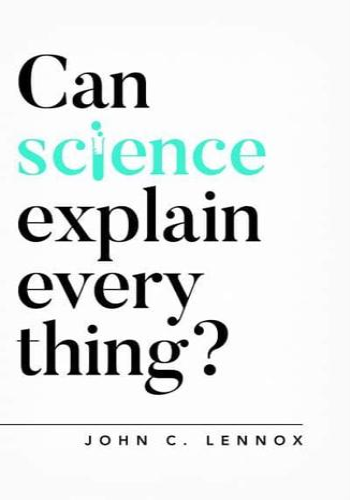Chapter 1: Science and Its Limitations
* Summary: Introduces the scientific method and its ability to provide empirical evidence. However, it also acknowledges that science cannot answer all questions, such as those involving morality or metaphysics.
* Example: The scientific method can prove that a certain drug reduces pain, but it cannot prove that it is the best treatment option for a patient.
Chapter 2: The Problem of Consciousness
* Summary: Explores the nature of consciousness and the debate over whether science can explain it. Some scientists argue that consciousness is an emergent property of complex brain activity, while others believe it is a fundamental aspect of reality that cannot be fully understood through scientific methods.
* Example: Scientists have made progress in understanding the neural correlates of consciousness, but they still cannot explain how physical processes give rise to subjective experiences.
Chapter 3: The Limits of Reductionism
* Summary: Discusses the reductionist approach to science, which seeks to explain complex phenomena in terms of their simpler components. Argues that while reductionism has been successful in many areas, it may not be able to fully explain complex systems like biological organisms or social groups.
* Example: A reductionist explanation of a car's function would focus on its individual mechanical parts. However, it would not capture the emergent property of the car's ability to transport people.
Chapter 4: The Role of Philosophy in Science
* Summary: Explores the relationship between science and philosophy. Argues that philosophy can help to clarify scientific concepts and assumptions, and to identify the limitations of scientific knowledge.
* Example: Philosophers have questioned the objectivity of scientific observations, arguing that they are always influenced by the observer's beliefs and expectations.
Chapter 5: Science and Values
* Summary: Examines the relationship between science and values. Argues that science cannot provide a complete account of what is good or bad, but it can provide information that can help us make informed decisions.
* Example: Scientific research can provide evidence about the health effects of various substances, but it cannot tell us whether smoking is morally wrong.
Chapter 6: The Future of Science
* Summary: Concludes by considering the future of science. Argues that while science has made tremendous progress, there are still many unanswered questions. It also discusses the potential benefits and risks of emerging technologies.
* Example: Artificial intelligence has the potential to revolutionize many industries, but it also raises ethical concerns about privacy and job displacement.







